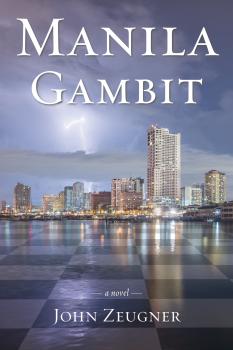ТОП просматриваемых книг сайта:
John Zeugner
Список книг автора John ZeugnerАннотация
An off-hand speculation by ex-pat and professor, David Moran, sends his celebrated historian colleague, Graham Guade, on an investigation that peels back American use of, and protection for, Japanese doctors who committed unspeakable medical experiments in WWII. The inquiry into the legacy of those atrocities churns up murder and madness in both countries, and toys with the interplay of intimacy and career success, as well as accident and causality in history.
Аннотация
The stories, tales, and memories of Life-Arc Teaching Tales deal with the instructiveness of teaching, as well as the hammered, ironic learning of getting through any lifetime.
Аннотация
These novellas track three meaning-making, moral skirmishes: a thickening tennis pro on the Florida-New York teaching circuit grapples with weakening personal commitments and a fading serve; a dispirited short-term Coast Guard reservist struggles with the ambiguity of an accidental murder on an icebreaker heading to the arctic; and an American vacuum sewers entrepreneur and a local archeologist explore the exploitation of women, art, and sexual comedy in Venice, Italy.
Аннотация
In This Footstool Earth, the final volume of The Japan Quartet, loose ends knit, recurring characters unspool or coil anew, and, as memories of atrocity thin, fiction's tissue mutates, melding cross-cultural encounters strangely.
Аннотация
Paul Snell, novice reporter, gets assigned a weekly column on chess, mostly because of his faux-filial attachment to the Hane Tribune's owner Waldo Turner. In return Snell promises to attend to, and probably marry, Waldo's fragile, unhinged niece Pamela Snow. The unlikely couple soon enough latch onto American chess prodigy, Mikey Spendip and his mother Vera, as they ascend the ladder of tournament chess. During the summer of 1980 at the Interzonal Finals in Manila, Philippines Spendip is persuaded to aid an uprising against dictator Ferdinand Marcos by deliberately losing a crucial match. But that gesture slips into a gory, comic fiasco. The novel is an ironic commentary on the nature of chess, chance, and love, in revolutionary circumstances.
Аннотация
Rector's assistant Owen Mathias, a young and average sensualist, gradually stumbles on the considerable connections his church in Kobe, Japan, has to atrocities committed by Unit 731, Japan's biological warfare research center in Harbin, Manchuria, during World War II. Mathias's discoveries toss him into theodicy's deepest pit, savaging his faith and pinballing him among the vapid convictions of his rector, the pieties of ex-pat parishioners, the bitter doubts of an American missionary couple, the placid sexuality of his Japanese girlfriend, and the fey manipulations of Japanese witnesses trying to reveal and contain and explain the story. The Great Hanshin Earthquake in Kobe in 1995 underscores the theological writhings Mathias undergoes and his emergence as an ambivalent and comic soldier for Christ.






